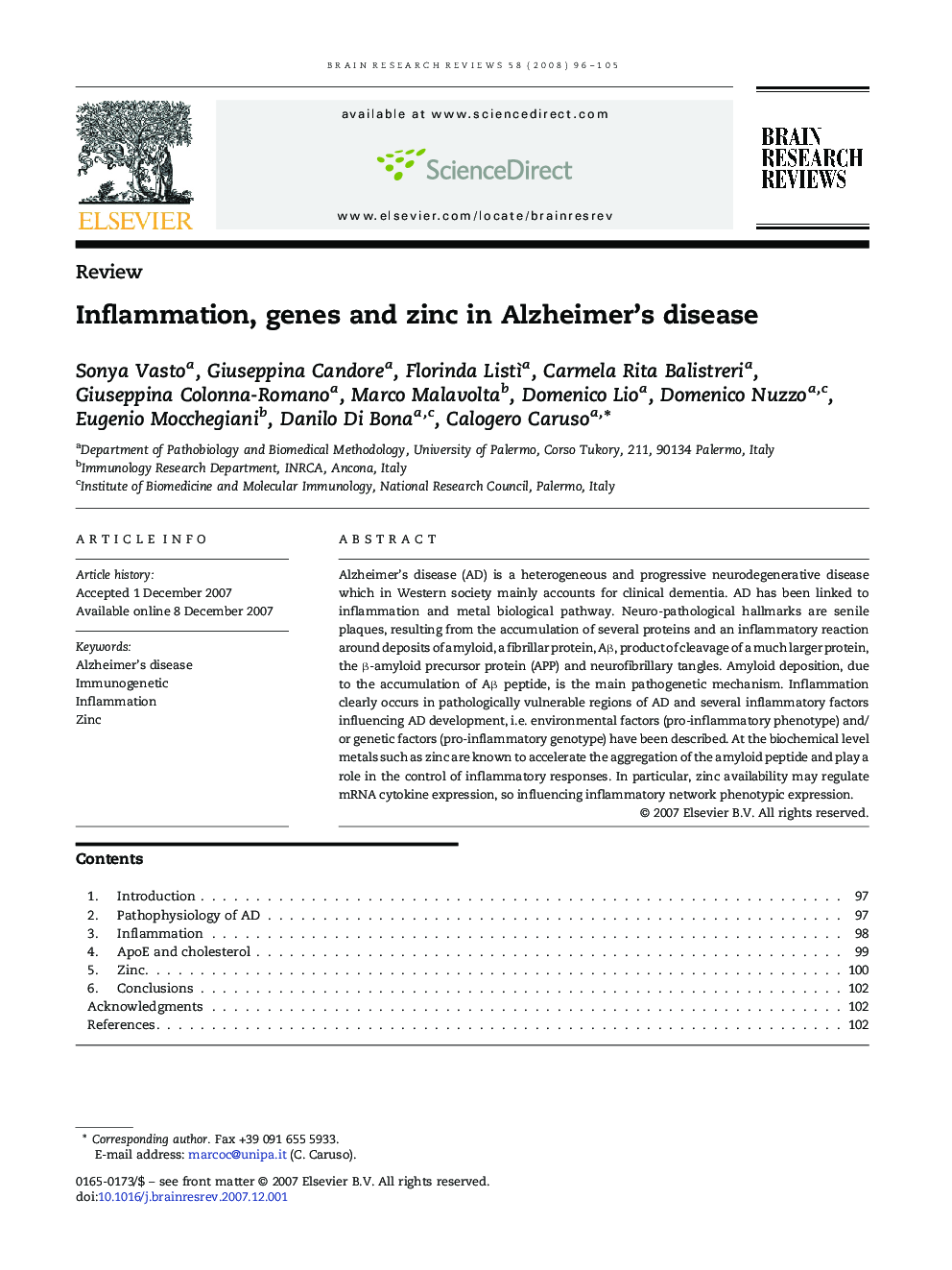| کد مقاله | کد نشریه | سال انتشار | مقاله انگلیسی | نسخه تمام متن |
|---|---|---|---|---|
| 4333754 | 1294751 | 2008 | 10 صفحه PDF | دانلود رایگان |

Alzheimer's disease (AD) is a heterogeneous and progressive neurodegenerative disease which in Western society mainly accounts for clinical dementia. AD has been linked to inflammation and metal biological pathway. Neuro-pathological hallmarks are senile plaques, resulting from the accumulation of several proteins and an inflammatory reaction around deposits of amyloid, a fibrillar protein, Aβ, product of cleavage of a much larger protein, the β-amyloid precursor protein (APP) and neurofibrillary tangles. Amyloid deposition, due to the accumulation of Aβ peptide, is the main pathogenetic mechanism. Inflammation clearly occurs in pathologically vulnerable regions of AD and several inflammatory factors influencing AD development, i.e. environmental factors (pro-inflammatory phenotype) and/or genetic factors (pro-inflammatory genotype) have been described. At the biochemical level metals such as zinc are known to accelerate the aggregation of the amyloid peptide and play a role in the control of inflammatory responses. In particular, zinc availability may regulate mRNA cytokine expression, so influencing inflammatory network phenotypic expression.
Journal: Brain Research Reviews - Volume 58, Issue 1, June 2008, Pages 96–105